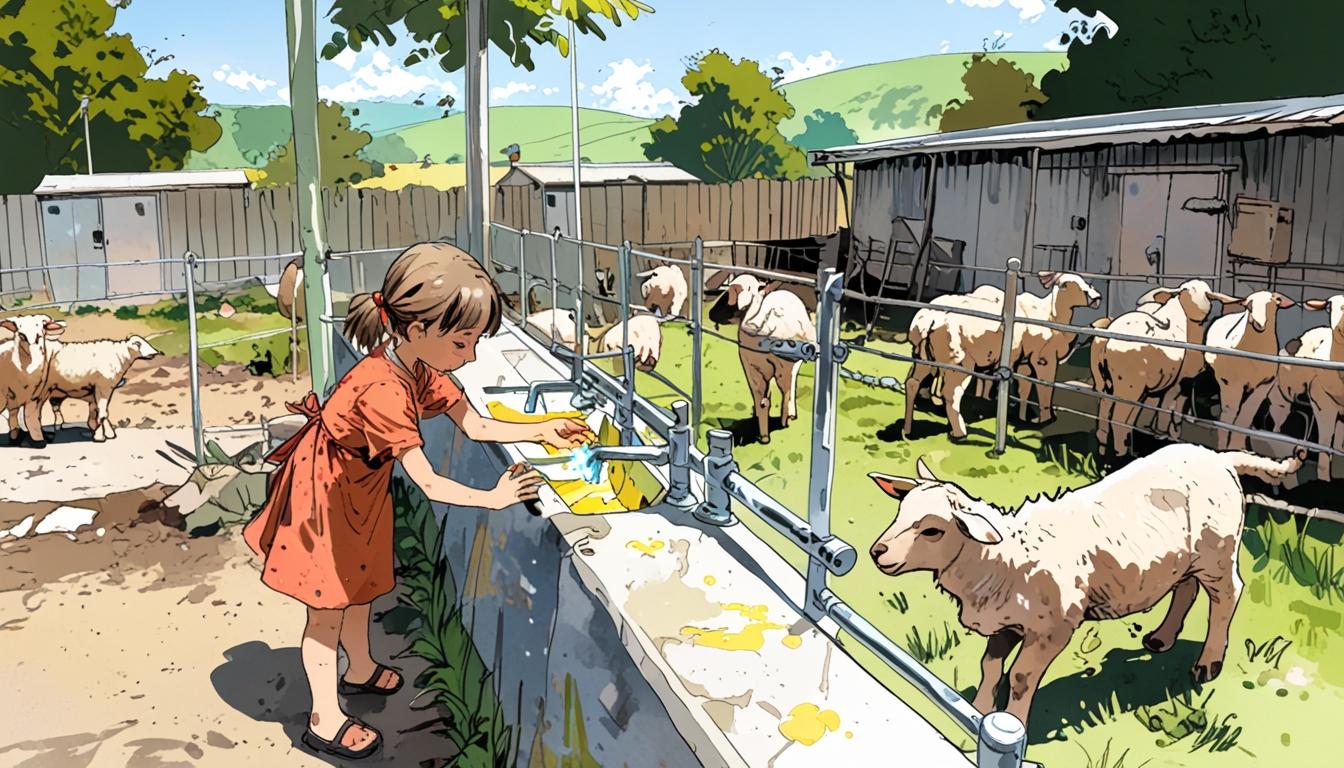The parents of a four-year-old boy have described their ordeal after he fell seriously ill following a visit to a petting farm in Cowbridge, Vale of Glamorgan. During a holiday abroad, symptoms of severe illness suddenly developed, marking a distressing turn in what should have been a joyful family outing. This incident coincides with an investigation by Public Health Wales into a concerning outbreak of cryptosporidium affecting 74 individuals who had visited Cowbridge Farm Shop during April.
Cryptosporidium, a tiny parasite commonly associated with young farm animals, can lead to gastrointestinal illness, manifesting in symptoms such as severe diarrhoea and abdominal cramps. While many cases are mild, they can be particularly serious for young children, the elderly, or those with weakened immune systems. Public Health Wales has reported that, alarmingly, 16 of the individuals caught in this outbreak required hospitalisation for at least one night due to their symptoms.
This is not an isolated case. In recent weeks, health officials have been responding to similar outbreaks across the UK. In Cwmbran, Torfaen, for example, four confirmed cases and 13 potential cases of cryptosporidium have been linked to community farm activities, particularly relating to the bottle-feeding of lambs and goats, a popular and engaging activity for families at these attractions. This highlights the critical need for stringent hygiene practices; Public Health Wales has advised visitors to wash their hands thoroughly after any contact with animals, a reminder of the vulnerabilities surrounding these playful interactions.
At a broader level, the threat posed by cryptosporidium has been underlined by additional outbreaks linked to agricultural settings. Over 20 individuals, including very young children, sought legal counsel after experiencing severe illness following a visit to Gannow Farm in Worcestershire. Similar symptoms have been diagnosed in these cases, all pointing towards the opportunistic nature of the parasite in environments where animal contact is common.
In light of such recurring incidents, farms have been compelled to take decisive actions. Gannow Farm's recent confirmation of a sickness outbreak led to the immediate closure of its operations for the remainder of the season, as well as refunds to affected patrons. This proactive approach is crucial not only for public safety but also to restore trust in agricultural venues, which are increasingly faced with scrutiny over health and safety standards.
Reflecting on these outbreaks, health experts emphasise the significance of proper biosecurity measures at agricultural sites. A retrospective cohort study conducted in 2023 revealed that many outbreaks stemmed from specific animal contact events, with lambs in petting pens identified as a primary source of infection. These findings serve as a critical reminder of the responsibilities resting on farms and event organisers to implement effective measures that can mitigate these health risks.
As families continue to seek enjoyment and education in agricultural settings, the balance between these activities and public health remains paramount. Good hygiene practices, rigorous health monitoring, and a collective commitment to safety by both visitors and farm operators are essential steps to prevent future outbreaks and safeguard the enjoyment of these beloved rural experiences.
Source: Noah Wire Services
